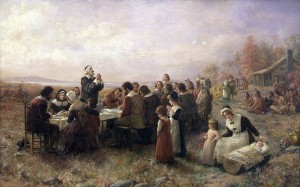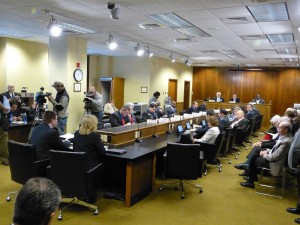Download Church Bulletin Insert on Fayetteville Ordinance
The group working to repeal Fayetteville’s contentious “nondiscrimination” ordinance has released a flyer designed to be included in church bulletins.
The insert identifies some of the problems of the ordinance and highlights the unintended consequences Americans have experienced elsewhere as a result of this type of legislation, writing,
“[In] Fayetteville Chapter 119 dictates the criteria by which churches hire their own staff for ‘secular’ roles. [In] San Antonio the original ordinance would have barred anyone speaking against homosexuality for appointed office. [In] Houston the [supporters of the ordinance] subpoenaed all sermons, emails & text messages of pastors who stood against them.”
This bulletin insert is a good resource for any church or minister wishing to inform people about the “nondiscrimination” ordinance in Fayetteville and the effort to repeal the ordinance on December 9.
Download the Church Bulletin Insert Here

 Thanksgiving is less than a week away. As the holiday approaches, the Chuck Colson Center for Christian Worldview has re-released a classic commentary from the late Chuck Colson about the real hero of the first Thanksgiving: God.
Thanksgiving is less than a week away. As the holiday approaches, the Chuck Colson Center for Christian Worldview has re-released a classic commentary from the late Chuck Colson about the real hero of the first Thanksgiving: God. When Arkansans headed to the polls earlier this month, many of them probably did not realize one of the items on the ballot was an extension of term limits for lawmakers.
When Arkansans headed to the polls earlier this month, many of them probably did not realize one of the items on the ballot was an extension of term limits for lawmakers.